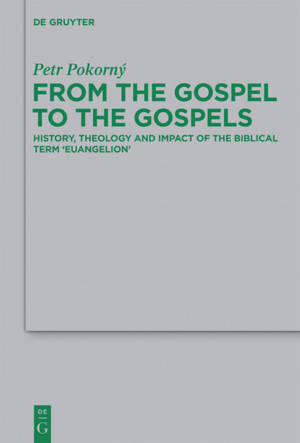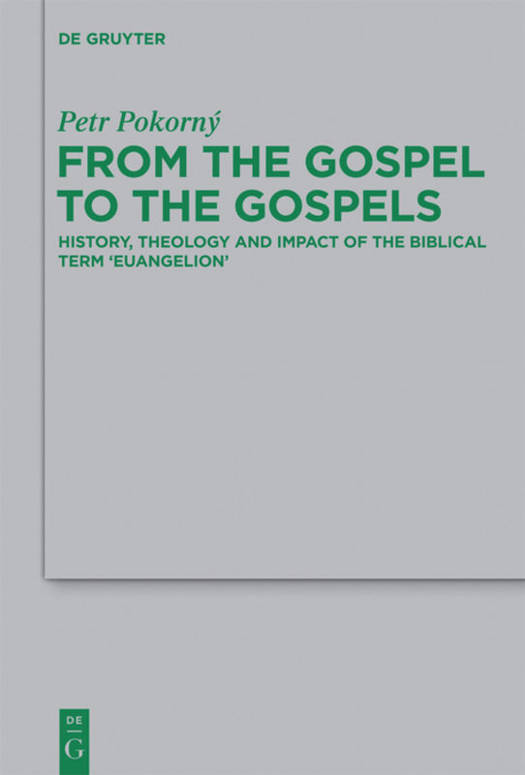
- Afhalen na 1 uur in een winkel met voorraad
- Gratis thuislevering in België vanaf € 30
- Ruim aanbod met 7 miljoen producten
- Afhalen na 1 uur in een winkel met voorraad
- Gratis thuislevering in België vanaf € 30
- Ruim aanbod met 7 miljoen producten
Zoeken
From the Gospel to the Gospels
History, Theology and Impact of the Biblical Term 'Euangelion'
Petr Pokorný
€ 121,45
+ 242 punten
Omschrijving
The monograph is devoted to a crucial point of Christian theology: its development from the short formulae of the 'gospel' (euangelion) - as the first reflected expressions of Christian faith - to the theology of literary Gospels as texts that evoked the idea of Christian canon as a counterpart of the "Law and Prophets". In the formulae of the oral gospel the apocalyptic expectations are adapted into a "doubled" or "split" eschatology: The Messiah has appeared, but the messianic reign is still the object of expectation. The experience with Jesus' post Easter impact has been named as "resurrection" of which God was the subject. Since the apocalyptic "resurrection" applied for many or all people, the resurrection of Jesus became a guarantee of hope. The last chapters analyze the role of the oral gospel in shaping the earliest literary Gospel (Mark). This book analyses Gospels as texts that (re-)introduced Jesus traditions into the Christian liturgy and literature. Concluding paragraphs are devoted to the titles of the individual Gospels and to the origins of the idea of Christian canon.
Specificaties
Betrokkenen
- Auteur(s):
- Uitgeverij:
Inhoud
- Aantal bladzijden:
- 247
- Taal:
- Engels
- Reeks:
- Reeksnummer:
- nr. 195
Eigenschappen
- Productcode (EAN):
- 9783110300543
- Verschijningsdatum:
- 22/01/2013
- Uitvoering:
- Hardcover
- Formaat:
- Genaaid
- Afmetingen:
- 156 mm x 234 mm
- Gewicht:
- 557 g

Alleen bij Standaard Boekhandel
+ 242 punten op je klantenkaart van Standaard Boekhandel
Beoordelingen
We publiceren alleen reviews die voldoen aan de voorwaarden voor reviews. Bekijk onze voorwaarden voor reviews.











